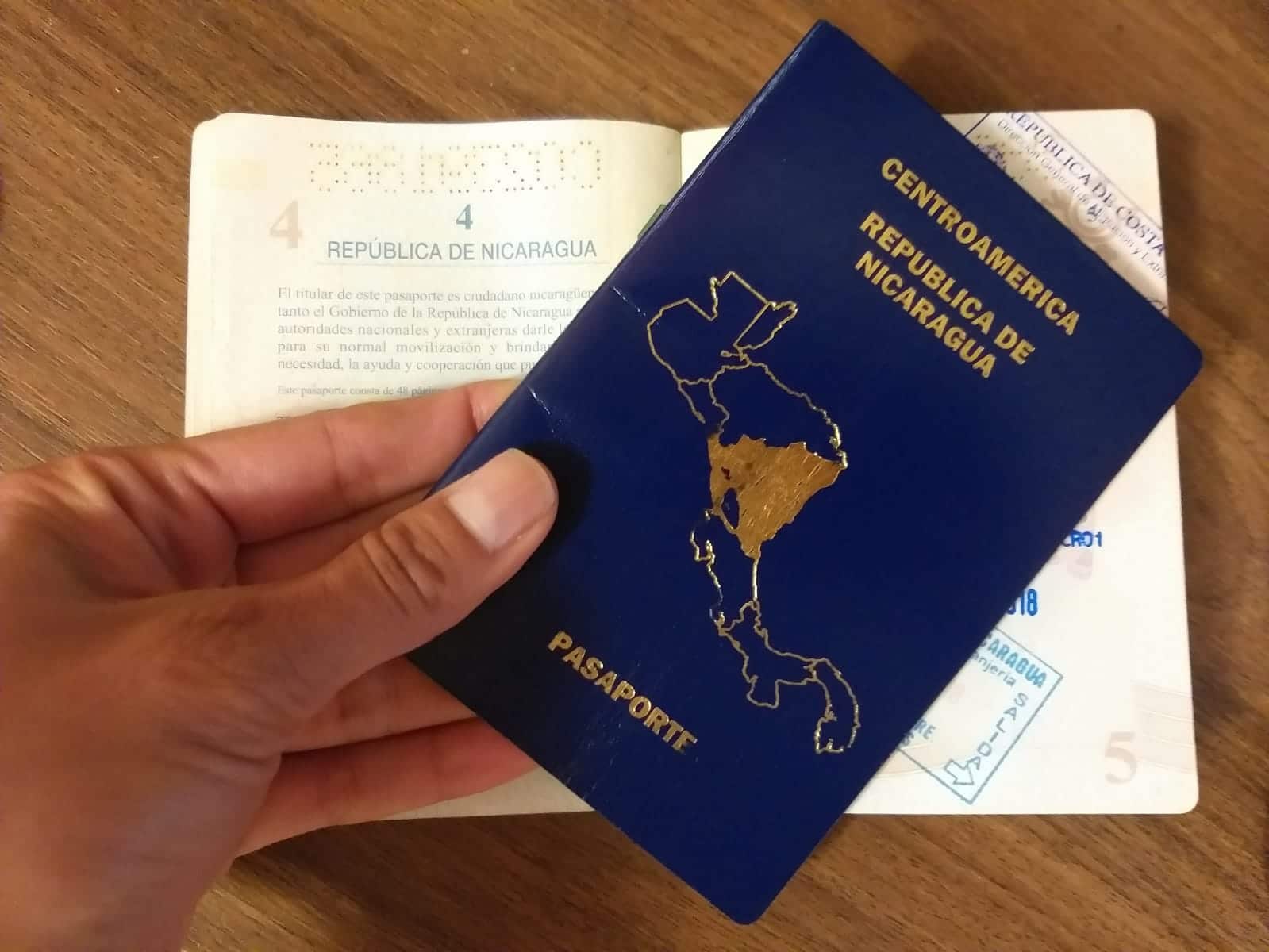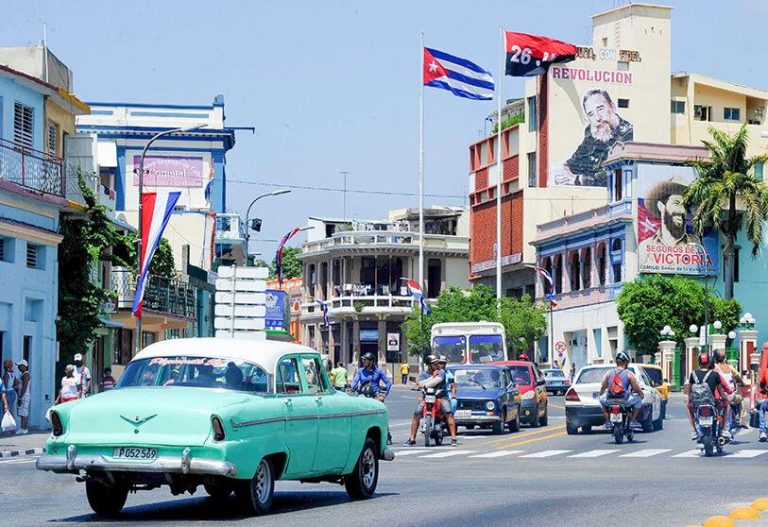29 de abril 2022

Nicaragua: Public Employees Hindered from Traveling to USA

PUBLICIDAD 1M
PUBLICIDAD 4D
PUBLICIDAD 5D
The artists spent ten days incommunicado in the El Chipote jail, from where they were taken directly to the Managua International Airport

Music producers Xochitl Tapia and Salvador Espinoza left the infamous El Chipote jail, after ten days of confinement, directly to the Managua International Airport; a plane ticket in exchange for their freedom. Staying meant remaining imprisoned indefinitely and being charged with some fabricated crime, Confidencial confirmed. Their case marks a precedent of “de facto exile” because Nicaraguan law does not provide for banishment from the country as a punishment, say lawyers consulted.
Tapia and Espinoza were abducted along with Josue Monroy, a member of the Monroy y Surmenage band, and the music producer, Leonardo Canales, on Holy Tuesday, April 19th. However, unlike the latter two who had another nationality – Salvadoran and Costa Rican, respectively – and were deported to those countries, the managers of Saxo Producciones had only Nicaraguan nationality.
Espinoza’s mother, Norma Rivera, told 100% Noticias that during the ten days that the couple was detained in the El Chipote prison they remained incommunicado. “The only thing they told us was that if we could get them out of the country, if we showed them a ticket where it was seen that they were going to leave the country, they would be released, but it was from the jail to the airport,” she said. So far, the details are unknown. Confidencial sought out the producers, but they are not providing interviews.
“Banishment as such is not legislated. Nicaragua is part of the International Convention on Human Rights and many international treaties that prohibit forced exile. What happened in this case? Exile was applied in a de facto manner, not in law, because we do not have it legislated,” explained the lawyer Yonarqui Martinez.
According to the UN Refugee Agency, banishment refers to the punishment of “expelling someone from a place or territory. Generally, it is the State that decides to expel or banish that person for having committed a crime.” Article nine of the International Convention on Human Rights prohibits a citizen from being “arbitrarily detained, imprisoned, or exiled.”
Martínez points out that in Nicaragua the figure of expulsion does exist, regulated in article 95 of the Penal Code, but it only applies to foreigners, not nationals -such as the music producers-, therefore, their forced departure cannot be considered expulsion. Rather, the move of the regime, according to Martínez, shows a de facto adaptation of laws that authoritarian regimes implement such as Cuba or Venezuela, where there is no rule of law.
“The State is committing a crime that is abolished in international treaties and conventions and that Nicaragua assumed when it became a party to them. In theory, we abolished banishment, even in the Constitution we reject the extradition of nationals,” said the lawyer.
The Cuban regime dismantles dissidence through prison and forced exile. It imposes it against opponents, but in recent months and after the unprecedented protests that broke out in July 2021 demanding freedom, food and medicine, it has been launched against several of the island’s critical artists.
Cecilia Noce, coordinator of the Project for the Defense of the Freedom of Artistic Expression of the CADAL Foundation -Center for the Opening and Development of Latin America-, based in Argentina, has systematized the violations against Cuban artists and points out that the “modus operandi” in Cuba is from the jail to the airport, similar to what happened with the Nicaraguan producers.
“What Cuba is doing is dismantling the artistic movements of dissent through the exemplary prison for some and forced exile for the rest.” In the case of those who are outside, they are not allowed to return, she explained.
On Abril 18, immigration authorities did not allow Nicaraguan Carlos Luis Mejía Rodríguez, a member and founder of the musical group La Cuneta Son Machín, to enter the country. During his stopover in El Salvador, on a flight from the United States, they informed him that he could not enter the national territory.
The raid against music producers and artists on the dates of the fourth anniversary of the April 2018 Rebellion, is believed to have been motivated by a 15th anniversary concert earlier in the month by the band Monroy and Surmenage, where criticism of the Ortega regime was raised through some songs.
Rivera, Espinoza’s mother, told 100% Noticias that “only we knew that they were preparing these concerts that they had with the bands they work with, with all these artistic groups that they promote, that they were preparing a series of concerts for the theme of April 19 (…) that is the tool that musicians have to make the situation in Nicaragua visible or to denounce or make visible what is happening,” he said.
She added that “they have always worked with the musicians who have been making these kinds of complaints, who are expressing for a country with justice, for a country where impunity is not the country’s norm… their only crime is using their art to be on a par with the people who need it”.
Both the Police and the Prosecutor’s Office remained silent about the arrests, despite the law requiring that a detained person must be presented before the judicial authority within a period of no more than 48 hours. For Noce it is still too early to speak of a trend or pattern similar to the one that occurs against Cuban artists, but notes there are “many parallels” and evidence, “one more level within what is the repression of freedom of expression in Nicaragua.”
Gonzalo Carrión, a member of the Nicaraguan Never Again Human Rights Collective, agreed with Martinez that the forced displacement of the two music producers is a banishment and has no legal support. “Banishment is equivalent to the dispossession of their rights because it is the State, in the maximum use of repressive force, of abuse of power, that decides to do that after having them imprisoned,” he said.
“Forced exile cannot be seen as a benefit because it is an imminent violation of human rights and international norms,” said Martinez. At the same time, she recalled that the producers are nationals and are not being allowed to live in their country.
The arbitrary arrests followed by banishment send a message to Nicaraguan musicians, said Carrion. However, he notes that it is not exclusive to artists, but rather that anyone who dares to continue raising their voice and defending rights in the country is exposed to this type of reprisal. “The measure is typical of a state of terror, used to increase the levels of fear of that state of terror, of that police state that is already four years old,” said the human rights defender.
This article was originally published in Spanish in Confidencial and translated by Havana Times
PUBLICIDAD 3M
Confidencial es un diario digital nicaragüense, de formato multimedia, fundado por Carlos F. Chamorro en junio de 1996. Inició como un semanario impreso y hoy es un medio de referencia regional con información, análisis, entrevistas, perfiles, reportajes e investigaciones sobre Nicaragua, informando desde el exilio por la persecución política de la dictadura de Daniel Ortega y Rosario Murillo.
PUBLICIDAD 3D